Right, before the main bit of this post, let’s get some niceness in your ears – my brand new album is here: Hit play while you read this:
…and if you’re in London or Birmingham, come see me play this week – Wednesday (tomorrow!) at the Bulls Head in Barnes, Sunday at Tower Of Song in Birmingham 😉
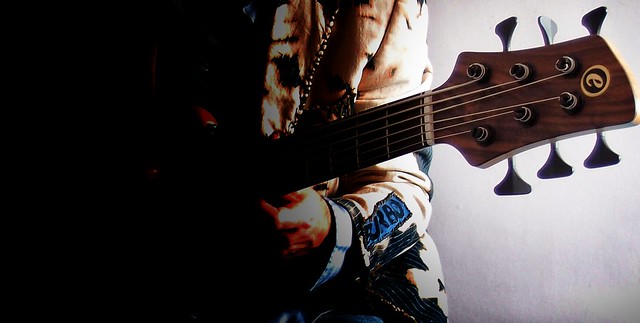
Now, on with the wordsmithery:
I’m an improvisor. That much is known, right? But there’s a pretty broad range of approaches to improv and ways of understanding what it means:
- People who play guitar solos on rock songs are often improvisors.
- Jazz musicians who play the head then play a solo full of material they’ve culled from the rich recorded history of jazz are improvisors.
- Classical musicians who can interpret figured bass and play baroque music authentically are improvisors.
- Free players who actively avoid consonance, western-harmonically-define melodic structure and metric rhythmic combinations are improvisors.
So where does my practice fit? Cos, let’s be honest, a lot of it doesn’t *sound* like improv, right? And the language we have to describe recordings is, quite understandably, about ‘songs’ and ‘compositions’ and ‘arrangements’. And once it’s recorded, it just *is*. The variation in the experience of the music is now all about context and the technology used to turn the digital file into sound… The [lossless] file itself is a fixed entity – if it gets changed, it’s a something else. It ceases to be the thing it was.
But the genesis of the music? That’s all improv. That’s not to say that none of the elements of the tracks on The Surrender Of Time have any precedent – that would be like expecting a conversationalist to invent new words every day to avoid being a script writer.
No, improv forms a distinct set of variables for me in music making, which I’ll attempt to list and explain here.
- Vocabulary, not repertoire: If you’re in a band, or planning to play in bands, your greatest asset is a repertoire of songs to call on, in a variety of styles that you’re comfortable with and respectful of. Being a great technician – beyond a fairly basic level of facility – is definitely secondary to your ears, understanding and experience. Your ability to play the songs is everything. The relationship between the songs and the spaces to add your own stuff in is variable depending on the setting, but first of all, you gotta know the songs. I know very few songs, comparative to how long I’ve been playing bass. I’m *really* good at learning sets when I need to (this is my job, after all!) but I don’t retain them, and I rarely practice songs between gigs. I don’t sit down and play along with records to practice, and I’ve done hardly any transcription in my life. I got good at it so I could do it when needed, but it ceased to be part of my own creative development when I started putting together the toolkit for making the music I cared about, based on the impact certain practices seemed to have on other players…Instead, I spent time – and still spend most of my time – building vocabulary. Working on variations on the building blocks that make up the sound that’s recognisable as me. Expanding the set of harmonic possibilities that follow any chord, building a set of sounds that take that music and give it meaning, working on myriad melodic ideas over all the harmonic areas that I’m finding interesting at the moment. When I hear music that moves me, instead of trying to recreate it, I intently focus on how it makes me feel, and then try to recreate that feeling with my own music. That’s one of the reasons why I can quite unashamedly love my own music – it’s not about an arrogant juxtaposition of what I do alongside what anyone else does, and I don’t necessarily expect anyone else to agree with my enjoyment of it, but if I didn’t love it, it wouldn’t exist. So when it comes to making the music, instead of me drawing on a massive catalogue of other people’s songs, or transcriptions of their solos, I’m searching through my own catalogue of sounds and ideas for the right thing to attach to whatever it is that I’m trying to say. It’s soundtracking, in a very unmetaphorical sense. But it also means that I never get to properly ‘re-play’ anything. I don’t do multiple takes of the same ‘piece’. I might spend a day exploring a particular area (similar to the process of working out what a book meant to you by talking to multiple people about it, and refining your own take on it…) but there’s never two ‘takes’ of the same piece. Sometimes multiple versions of that iterative process get released, because they’re always distinct enough to be treated as different works.
- Complexity vs Repeatability. So, because I’m not forward-projecting to a time when I need to be able to recreate this music, I can allow it to be WAY more complex that I could ever make a composition. Again, it’s not about relative levels of complexity with other musicians (there are people whose composed work would in many ways be way way harder to remember and recreate than mine…) it’s more about my process – I have very little headspace for spending months learning how to recreate existing work. I don’t operate in a commercial space where that matters… or rather, I’ve consciously constructed an alternate performance space, or slotted into the bits of existing ones where I fit, in ways that mean I don’t have to do that. But even then, I do bang up against audience expectation that they’d love to hear a favourite tune…. That’s totally understandable, especially as I spent quite a few years doing just that – playing my own songs, doing a set list… Getting away from that has brought about the single biggest leap forward in my creative process since I first picked up the recorder aged 5. When I listen to my live versions of recorded tunes now, it’s only the deviations from the script that interest me. The start point feels like an unnecessary limiting factor, when that start point could just as easily be a sound as a fixed melody.So I stripped back the start point to be vocabulary and emotion based, not ‘skeleton composition’ based. It’s pretty heavily influenced by what Coltrane did in later years, when his compositions got looser and looser and were mostly a vehicle for what came after the bit that anyone was familiar. Or Miles’ 70s work, culled from hours of improvisation. Or Bill Frisell’s live solo excursions.The result for me is that I can put things together in a way where the serendipity of how they fall IS the composition.The unknown state of just how the loops are going to line up half way through the song, or how that loop is going to interact with the Kaoss Pad I’m going to send it through… it’s not ‘random’, in the way that nothing that’s been looped digitally is ever ‘random’ – as soon as it’s done, the result is inevitable, it’s just that no-one can ever know what that will be. The ratios of loop length, because I don’t sync them, are sufficiently complex as to be unknowable, unlearnable, and thus I get to interact with that complexity like a brilliantly unpredictable creative partner. If I was trying to do things that I could recreate, all that would be lost. And if I did it over fixed ideas that were ‘the song’ (in a more jazz like way) that would feel like an unnecessary limiting factor on just how great things can get when serendipity is your homeboy…
- Aesthetic constraint vs ‘industry’ expectation : With all of that process, all of the various inspirations (I’m a VORACIOUS music listener, and treat it like ear-food), I needed to find a way to keep focussed on the musical path that would get me to where I felt I needed to get creatively, not be distracted by the rather narrow expectations the come with the various typical western contexts for music – radio stations that play songs, venues that want to know what you’re playing, audiences who make requests, corporate situations that expect a set list, musician-collaborators who want to play standards, or a set of songs. I needed to break from that. Context-wise, house concerts were that, without a doubt. The strangeness and unfamiliarity of ‘your friend’s house’ as a venue gives me a whole lot of creative latitude to mess with all the other expectations, as well as plenty of time to talk about this stuff between songs without the venue getting annoyed that people aren’t dancing…
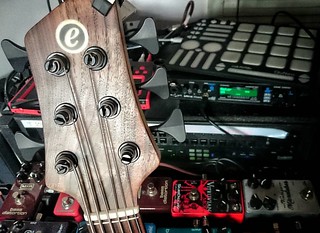 But I also needed a way to do something with all the recordings. Because, the simple set of influences on the actual sound of my work mean that the recordings are experienced as ‘finished works’. I’ve built a live recording set up that is basically a studio. The studio IS my instrument (which Jazzwise VERY perceptively picked up on in their review of The Surrender Of Time) – my musical influences contain a LOT of singer/songwriters, because I’m drawn to storytelling over pyrotechnics, politics over self-aggrandisement, questioning music over music that sees itself as the answer… and singers tend to do that best. The music becomes subservient to what the music is trying to say, whether that’s a death metal band, or a rapper, Joni Mitchell or Cannibal Corpse, Divinity Roxx or The Blue Nile – the music is all about creating the context for the story. I just get to hide my stories a little deeper by leaving out the words 😉
But I also needed a way to do something with all the recordings. Because, the simple set of influences on the actual sound of my work mean that the recordings are experienced as ‘finished works’. I’ve built a live recording set up that is basically a studio. The studio IS my instrument (which Jazzwise VERY perceptively picked up on in their review of The Surrender Of Time) – my musical influences contain a LOT of singer/songwriters, because I’m drawn to storytelling over pyrotechnics, politics over self-aggrandisement, questioning music over music that sees itself as the answer… and singers tend to do that best. The music becomes subservient to what the music is trying to say, whether that’s a death metal band, or a rapper, Joni Mitchell or Cannibal Corpse, Divinity Roxx or The Blue Nile – the music is all about creating the context for the story. I just get to hide my stories a little deeper by leaving out the words 😉
So, the records sound ‘finished‘. The language that makes most sense when talking about them is the language of songs, of arranging, or composing. They aren’t ‘jams‘ or ‘little grooves I’ve been working on‘ or however else people’s unfinished work on YouTube gets described, but they also aren’t things I’ve worked out, learned, done a couple of drop-ins on and chopped the end off to make them work for radio… They are conversation pieces that stem for a pretty highly developed philosophy of what improvising within the limitations of live performance with real-time looping makes possible. We have no real words for that, so I’m perfectly OK with you digging my songs 😉
My process is the result of 20 years of finding out how best to tell the stories I want to tell, to play the music that I hear in my head, and do it in a way that responds to the things I hear missing (for me) in other people’s music. When I hear music that doesn’t work for me, I don’t wish they changed it (telling someone else who hasn’t actually hired you as a teacher how they should play music is some tired lazy shit) I just use that as a nudge to work out what it was that was missing for me emotionally and adjust my musical process to work towards that thing that was missing… The gaps are mine to fill, not theirs. (as an aside, this is the exactly the same point of origin as my response to people who come and tell me what they think I should do, in a ‘you should do a funk record!’ or ‘you should totally do a whole ambient record’ or ‘I wish you’d do more of ****’ – my response is, ‘no, you should! It’s you that wants to hear that! This music is exactly what it’s meant to be – take the inspiration and go make your own music’.)
So anyway, call it a song, choose your favourites and play them over and over, transcribe them if that helps your own practice…just don’t ask me to play any of them at shows… 🙂



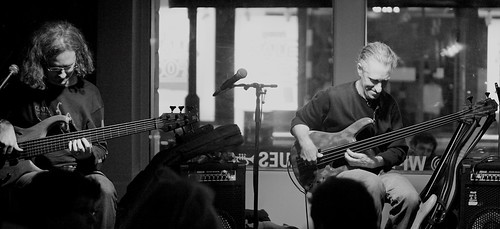
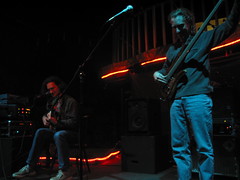

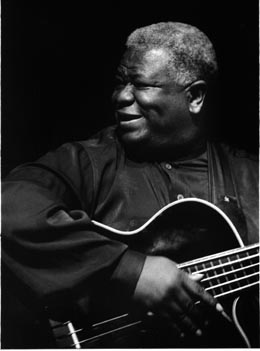
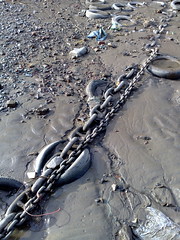 After the new tune I posted on
After the new tune I posted on 